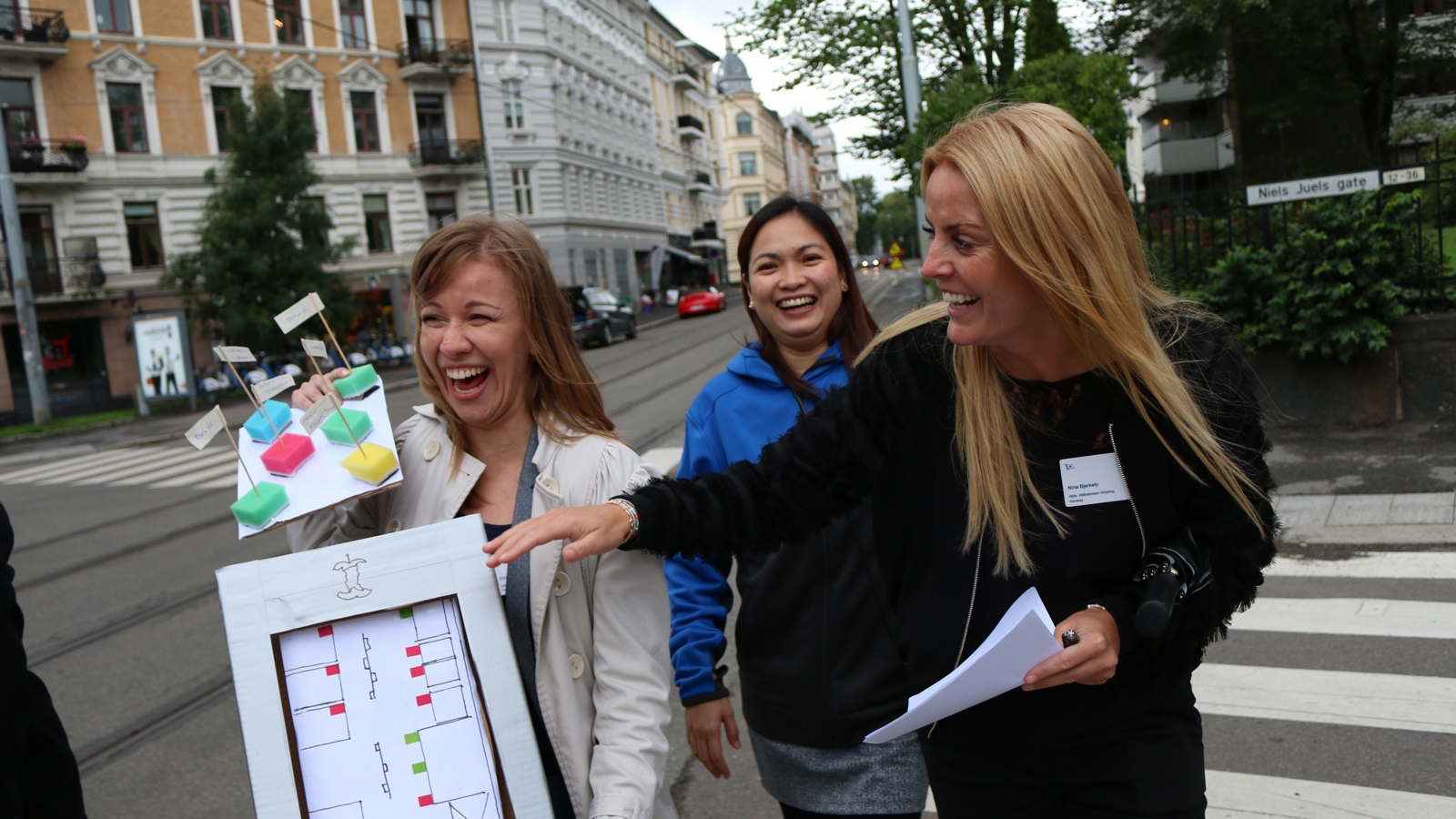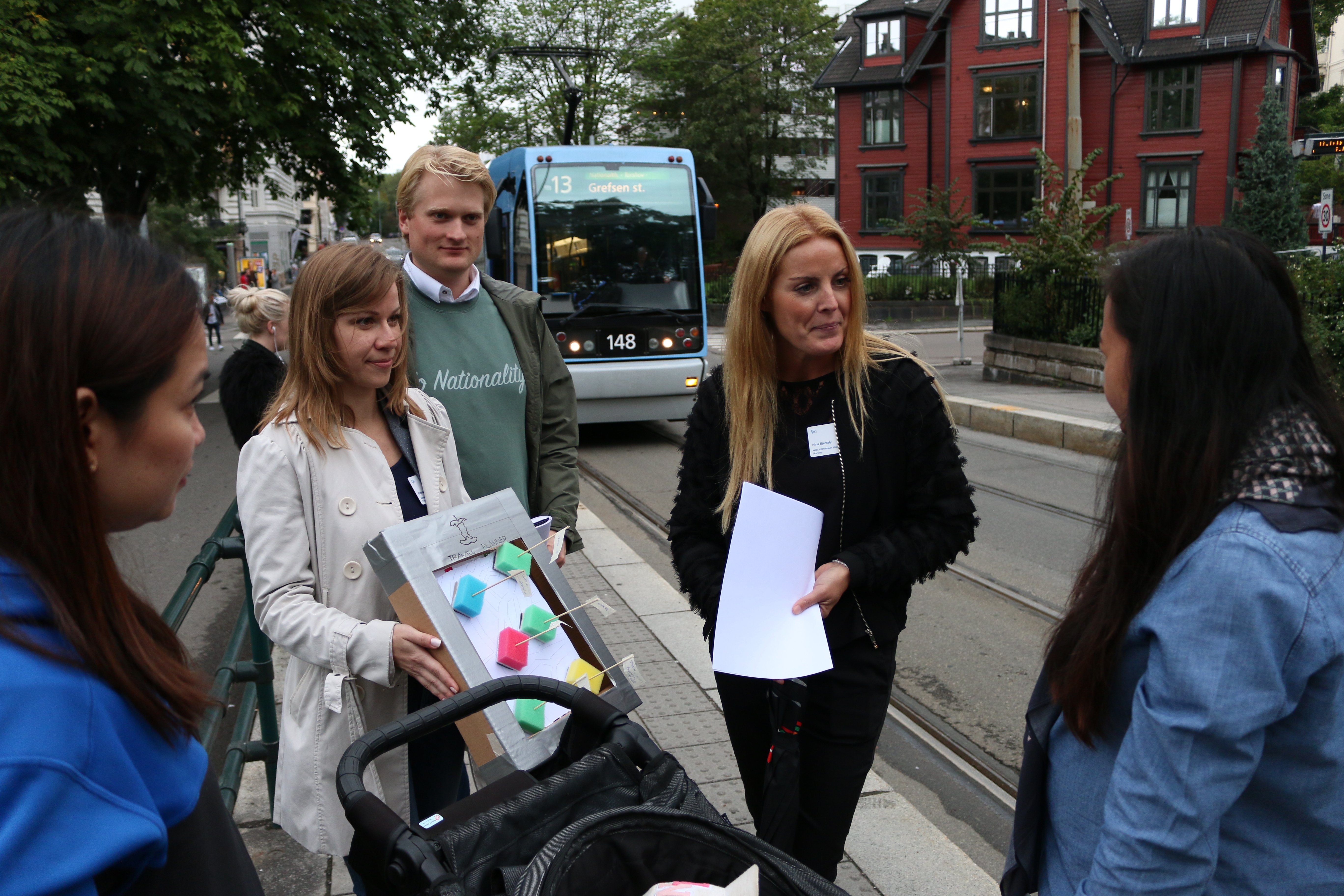
Stop talking. Start doing. Building a culture for the future.
Meet the Leadership Potential programme, or LePo. The pilot programme, first of its kind in Wilhelmsen, started in August this year. Through four modules, the LePo programme seeks to teach participants about new leadership toolboxes, how to use the design thinking methodology, adopt an agile mindset, and develop human-centred digital tools quickly, efficiently, and effectively.
Great. So, this new method and all the fancy words, what do they even mean
Because how is design thinking and an agile mindset different from the ways we use our business methods today? Owner and founder of Pracademy, the company behind LePo, Federico Lozano explains: “The LePo tools are highly human-centred, the tools start and end with the human in mind. This means that the students will spend a significant amount of time observing, interacting with, and learning from clients and other stakeholders in their day-to-day environments. The innovation methods we use, therefore, are applied out in the real world, and not in meeting rooms or in front of our laptops. We like to say that to learn about lions we avoid the zoo and go to the savanna".
But wait, why is this important for business
Our customers benefit from us being able to listen to them and move quickly. As Wilhelmsen speeds into the future, our ability to listen to customers and put them in the centre of our development for products and services, will give us a competitive edge. Our competitors are of course thinking the same way, so not being an organisation that embraces new methods would potentially be devastating for our company.
To be quick on our feet, we have to understand agile leadership and what this means for our culture going forwards. Mastering agile leadership enables Wilhelmsen to embrace continuous change, it permits us to potentially blossom in a world that is increasingly volatile, uncertain, complex and ambiguous. Federico explains it this way: "This mind shift into agile includes: moving from linear to non-linear thinking, from being clarity-seeking to ambiguity-embracing, and from a control orientation to an experimental one".
To put this in practical terms
During the first module the LePo candidates first ventured out into the streets of Oslo with a simple task: pretend you're not from Oslo and you have no idea of how the local public transportation system works, and you don't speak a word of Norwegian. See if you can find any challenges in the system and note those down, take pictures, video or audio, just make sure you understand all the issues and problems that arise.
Go!
The LePo participants came back with lots of things to ponder, grouped the problems only to be asked to go out again. This time the candidates were tasked to talk to random people about their problems with the public transportation system and through those conversations dig deeper into what were the real problems for any given user profile of public transportation system. A longer story cut short, design thinking starts with understanding problems and making sure you really dig and look for issues before you even start to consider any solution. The LePo groups were made up of five teams and at the end of the first module there were five different suggestions on solutions for five different user groups of the public transportation system – remember all five teams went out with the exact same task at first.

Some of the LePo candidates talking to users of the Oslo public transport system, proposing a solution prototype to test the user experience and sentiment.
What LePo means to every employee
Federico Lozano explains further about Wilhelmsen's benefit of the programme: "The LePo grads will not only have learned a set of very practical and useful tools for digital innovation. They will also gain leadership competencies to communicate with, train, and motivate colleagues to adopt the same methods and mindset across the group. The LePo candidates will become ambassadors of design thinking, agile methods, and digitalisation".
What happens next
The LePo modules are concluded in December this year, with the intention to continue in 2018 for new candidates. As LePo and other initiatives such as the Maritime Innovation Lab, smart ropes, drones and 3D printing happen in the Wilhelmsen group, our company continues to focus on innovation and shaping the maritime industry.